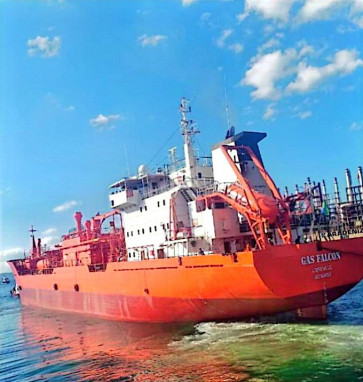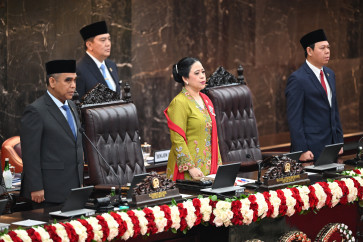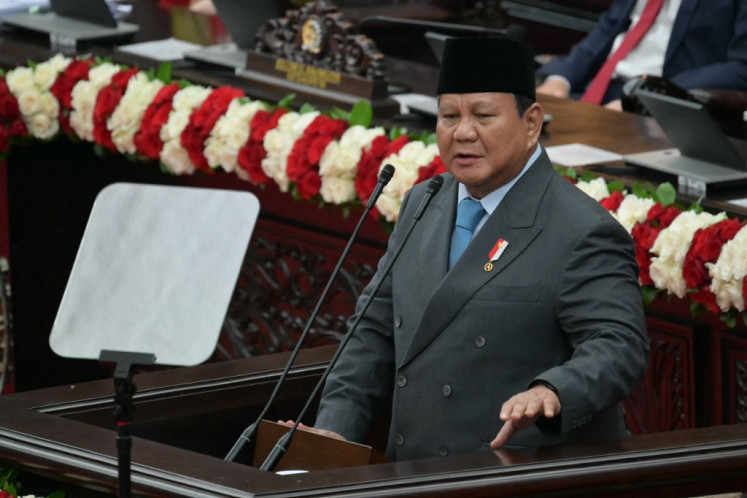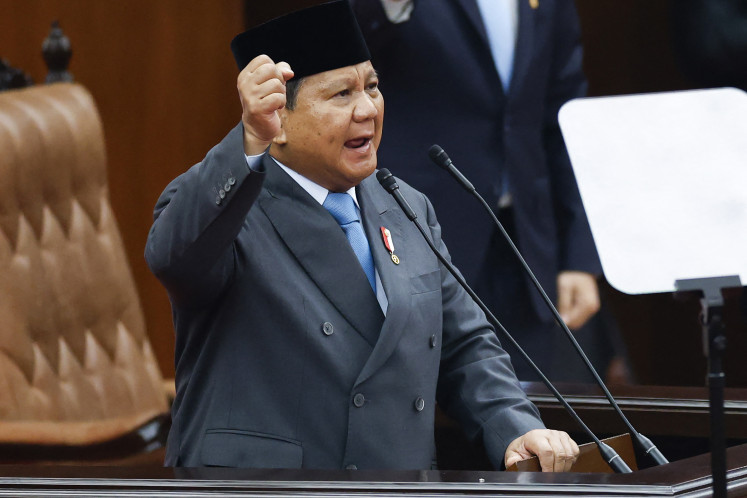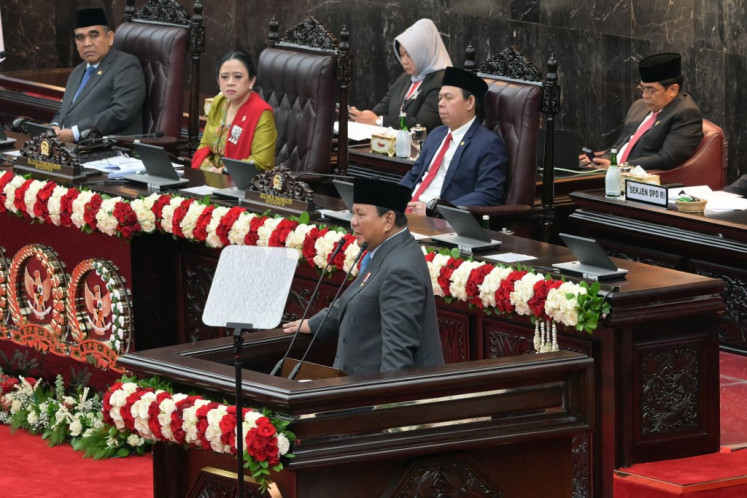Popular Reads
Top Results
Can't find what you're looking for?
View all search resultsPopular Reads
Top Results
Can't find what you're looking for?
View all search resultsRI to keep exporting LNG, despite local need
Bargaining ship: : A tanker docked at Bontang LNG plant, East Kalimantan
Change text size
Gift Premium Articles
to Anyone
B
span class="caption" style="width: 468px;">Bargaining ship: : A tanker docked at Bontang LNG plant, East Kalimantan. Liquefied natural gas (LNG) is the country’s bargaining chip for more foreign direct investments. Inpex Holdings via BloombergThe government will continue to export part of its national gas production in the future but the domestic market will become the main priority, a senior official of upstream oil and gas regulator BPMigas has said.
BPMigas chairman R. Priyono said on Thursday that it would maintain gas exports because if not it would be difficult for Indonesia take advantage of future global gas demand. However, he said ensuring sufficient supply in the domestic market would be the main priority,
“We are prioritizing the domestic market but we also have interests in the international market,” he told a press conference after the opening ceremony of the LNG Forum 2012 in Nusa Dua, Bali, on Thursday.
He said Indonesia now had several competitors in the global LNG market such as Malaysia and Australia. If Indonesia stopped its LNG exports, it would lose the opportunity to tap future opportunities.
He explained that a LNG export contract was usually for a long term, approximately around 20 years. “If we lost the market now then we would find it hard to find the buyers of our LNG over the next 20 years.”
Earlier, Energy and Mineral Resources Ministry (ESDM) director general for oil and gas Evita Herawati Legowo said that the ministry might stop exporting LNG exports in the future so that all of the country’s gas production could be used to meet growing demand in the domestic market.
She said that the government was trying to change the paradigm in the use of the country’s gas. If at present, the larger part of gas production is exported in order to generate as much foreign exchange earnings as possible to support the budget, in the future gas will be used to support domestic industry in order to create economic growth.
Evita said that the gas export moratorium scheme would also prompt multiplier effects in the economy which would in turn bring tremendous benefits for the country.
According to the ministry, Indonesia produced 362 LNG cargoes in 2011. It exported the LNG to its traditional buyers: Japan, the largest buyer, with 172 cargoes, followed by Korea with 68 cargoes, the US (55), China (35) and Taiwan (32).
Other data shows that in the first four months of this year, Indonesia exported 2.72 million tons of gas worth US$2.43 billion or 18.65 percent less than the $2.99 billion in the same period last year.
State oil and gas company Pertamina, state-owned gas distributor PGN and state electricity company PLN have recently unveiled plans to import LNG to cope with supply shortages at home.
Pertamina said that it planned to import LNG from Africa and Australia starting 2013 to cope with growing demand in the domestic market. It plans to take 1 million tons per annum (mtpa) of LNG from each source.
Indonesia is currently developing several big natural gas projects including the Indonesia Deepwater Development (IDD) in cooperation with PT Chevron Indonesia Company, the Jangkrik field, the Muara Bakau block as well as the Abadi field and Masela block.
The LNG 2012’s two-day forum was attended by different stakeholders including representatives from the government, also as many as 200 investors who came from six countries.
The chairman of Facts Global Energy (FGE) Fereidun Fesharaki, told The Jakarta Post that if Indonesia chose to only sell its LNG in the domestic market then it would scare some investors.
“It might be harmful because it may scare off investors,” he said. He added that several natural gas projects that Indonesia was currently developing were mostly huge-scale projects that needed a lot of funding. If the gas production was directed only for domestic use, it would be difficult to find international financiers for such projects, Fesharaki claimed.
He suggested that Indonesia should offer several incentives and ensure clear regulation in order to attract investors.



